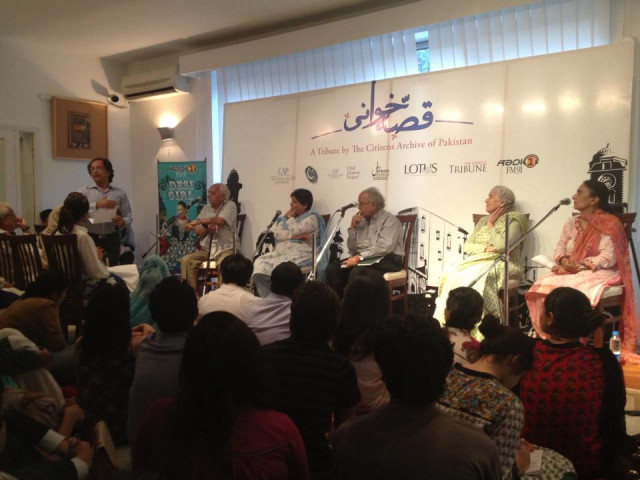
Senior citizens shared stories of flights in terror, of hope and inspiration, and of loss and anguish at the time of Partition here at an event arranged by the Citizens Archive of Pakistan at Faiz Ghar on Thursday.
Inspired by the historic Qissa Khwani Bazaar in Peshawar, where traders from various ethnicities used to discuss their stories over a cup of kava at the market’s tea houses, the three-day event invites citizens to share their experiences of Pakistan’s early history.
Thursday was dedicated to stories about Partition and the consequent migrations it forced, cross-border journeys often accompanied by acts of unimaginable sectarian brutality but also of kindness.
Jamila Zaidi, a former principal of the National College of Arts, remembered being warned, on the day of Partition, by a Sikh neighbour in Ambala, now in Indian Punjab, that they must leave if they wanted to live. The family spent three terrifying nights at the railway station waiting for a train to Pakistan. “The Sikhs of our area were very supportive. They provided us food every day,” she said.
Azra Haq recalled “the most dreadful experience of my life” when she saw a pregnant woman, aged just 18, being pulled from a truck and having her throat slashed open by a mob of Sikhs. “I still have a scar on my back as one of them attacked me with a steel rod,” she said.

Haq and her relatives, and other Muslim families, were fleeing Jullandhar in three trucks provided by a British brigadier on the night of August 30, 1947, after her Sikh neighbour told them to leave their large haveli and move to the new Muslim country.
Still, Haq said it was important that Pakistan try to follow the vision of its founder and avoid becoming an extremist society. She had seen Quaid-i-Azam Muhammad Ali Jinnah speak at a gathering in Jullandhar where “everyone was left spellbound”. She recalled an elderly lady who had been unable to understand English but been entirely convinced of all that the Quaid was saying.
Brigadier (retired) Salim Zia, who was a campaign volunteer for the 1946 elections, said that Jinnah had had that effect on a lot of people. He and fellow students at Islamia College once watched the Quaid speaking in Lahore and noticed an elderly man enthusiastically backing every word.
“I asked him if he understood what he was saying, to which he replied, ‘I don’t know what he’s saying, but whatever it is, he is telling the truth.’ You don’t see that kind of faith in leaders today,” he said.
Zia had campaigned for the Muslim League candidate, Muhammad Hussain Chattha, in Sheikhupura, travelling through the town on a tonga mounted with loudspeakers. Their election opponent, he said, was a “local tyrant” landlord whose tenants made up a large proportion of the electorate.
He said that Islam had increasingly come into use to attract votes for the Muslim League in these elections. “Nobody shouted that famous slogan – ‘Pakistan Ka Matlab Kya? La Ilaha Ilallah’ before 1946. It was only used to attract villagers, but unfortunately we carried the slogan too far ... The Quaid wanted a separate welfare state for the Muslims, not an Islamic state or a state for mullahism,” said Zia.
Zahida Mushtaq talked about the need for a separate homeland for Muslims, saying that in comparison with Hindus, they had far fewer education and economic opportunities and hence far less social mobility. Partly, she said, this was because of a harmful mindset among Muslims who saw a Western education as haram, she said.
Madeeha Gauhar, leader of theatre group Ajoka, commented that the stories narrated on the day represented only the Muslim viewpoint on Partition. She said people were butchered on both sides of the border and it would have been good to hear stories from the other side too.
Rafay Alam, a lawyer, appreciated the effort and said it was a great opportunity to learn about the country’s history.
The event will continue for two more days, which will be about the early years of Pakistan Television and Radio Pakistan and the evolution of Pakistani cities.
Published in The Express Tribune, June 21st, 2013.
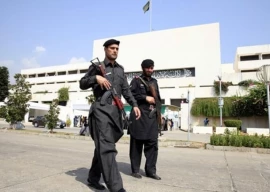
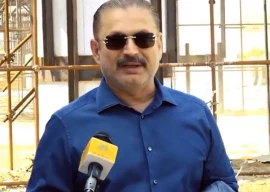
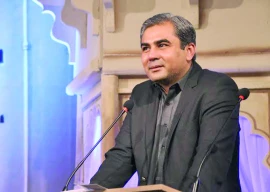
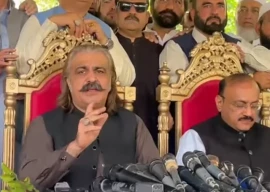

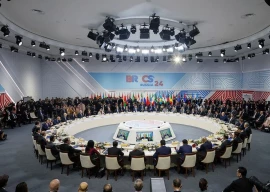


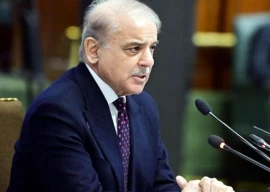



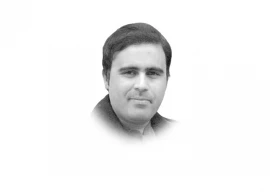




COMMENTS
Comments are moderated and generally will be posted if they are on-topic and not abusive.
For more information, please see our Comments FAQ